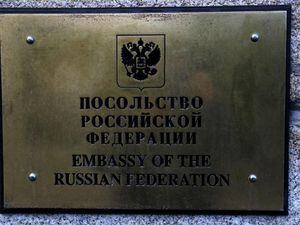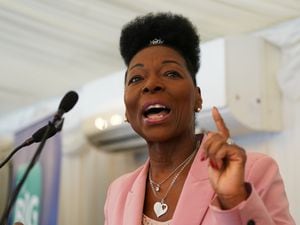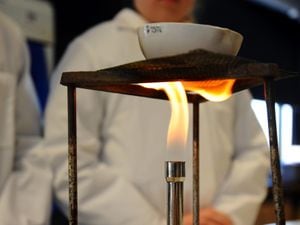Yulia Skripal rejects Russian embassy offer of consular assistance
The 33-year-old daughter of ex-spy Sergei Skripal left hospital this week after a nerve agent attack in March.

Yulia Skripal has told British authorities she does not wish to speak to Russian officials as she continues to recover from a nerve agent attack.
A diplomatic battle has been raging between the two nations over whether the Russian embassy should be allowed access to the 33-year-old daughter of ex-spy Sergei Skripal.
Ms Skripal, found critically ill alongside her 66-year-old father on a bench last month, was discharged from a hospital in Salisbury, Wiltshire, this week.
It is believed that British authorities immediately spirited her away to a secure location.
The embassy reacted angrily to the news, suggesting in a series of tweets that the Russian national had been taken against her will.
However, it is understood that the offer of consular support from Russia was presented to Ms Skripal – and rejected.
She is believed to have expressed no interest in talking to consular officials.
Russia remains the prime suspect for carrying out the attack on Mr Skripal and his daughter.
A spokesman for the Foreign and Commonwealth Office said: “We have previously passed on the Russian embassy’s offer of consular support to Yulia.
“She is free to decide on whether she wishes to pursue that. To date, we understand she has not done so.”
The embassy remains perturbed by a refusal from UK authorities to grant Ms Skripal’s cousin Viktoria a visa to visit her family.
Ms Skripal’s release from hospital was met with a similar broadside from the embassy, which has repeatedly criticised the handling of the investigation into the attack.
In a statement, a spokesman said: “We congratulate Yulia on her recovery.
“Yet we need urgent proof that what is being done to her is done on her own free will.”
Continuing the onslaught of scepticism on Wednesday morning, it suggested reports Ms Skripal had turned down consular assistance actually revealed she is being ” held hostage by the same people who destroy evidence and fail to come up with a single official account of the crime”.
Russian foreign minister Sergey Lavrov previously said it was “outrageous” that Britain had failed to provide consular access to Ms Skripal as news of her improving condition was announced earlier this month.
Her release from hospital was announced by Salisbury District Hospital medical director Dr Christine Blanshard on Tuesday.
She said: “Both patients have responded exceptionally well to the treatment we’ve been providing. But, equally, both patients are at different stages in their recovery.
“I want to take this opportunity to wish Yulia well. This is not the end of her treatment but marks a significant milestone.”
She added: “Although he is recovering more slowly than Yulia, we hope that he too will be able to leave hospital in due course.”
The former double agent was jailed in Russia for selling secrets to MI6 but was released as part of a spy swap deal in 2010 and settled in the UK.
It is hoped he will soon be fit for release from hospital, despite grave fears that the exposure to military-grade nerve agent Novichok on March 4 would prove fatal.
Britain has said that Russian state involvement is the only plausible explanation for the attack and has led a worldwide reaction involving the expulsion of more than 100 diplomats.





